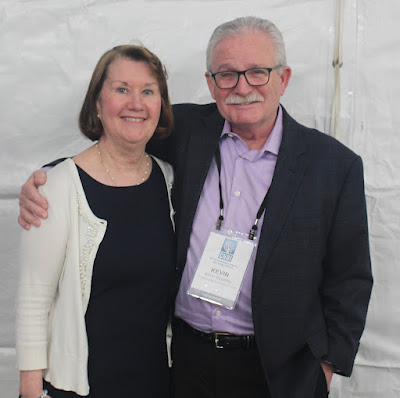With a record 420-plus participants, the 19th Annual Huntington’s Disease Therapeutics Conference got under way on February 26 with the aim of speeding the quest for therapies to slow, halt, or reverse the symptoms of this incurable disorder.
Sponsored by CHDI Foundation, Inc., the largest private funder of HD research, the event runs through February 29 at the Parker hotel in Palm Springs, CA, and will feature three days of scientific and clinical presentations.
“In recent years the quest for HD therapeutics that will make a real difference to affected families has accelerated and deepened,” CHDI Chief Scientific Officer Robert Pacifici, Ph.D., wrote in a welcome letter to the participants. “Accelerated in the sense that every week seems to bring new scientific insight, whether from publications or reports on new and ongoing clinical initiatives. Deepened in the sense of the sophistication of our understanding of the underlying HD biology that informs our drug development work.”
HD research has also “broadened,” Dr. Pacifici added, noting that participants are displaying a record 140-plus posters. Representatives from 55 pharmaceutical and biotech companies and 69 academic institutions will take part.
In his letter and opening remarks to the conference, Dr. Pacifici outlined how CHDI has reorganized its scientific-thematic approach to “better align” its activities “with this burgeoning body of knowledge.”
The conference, following such themes, will focus on new research into the roles of mutant huntingtin DNA, RNA, and protein in HD. Conference-goers also will focus on the hot topic of somatic instability, the tendency of the deleterious expansion of the DNA to worsen with age and therefore trigger disease onset.
A caregiver’s moving keynote and a vital TED Talk
Following Dr. Pacifici’s overview, the audience watched a deeply moving 80-minute keynote speech, not to be shared publicly, by Cheryl Sullivan Stavely, RN. Stavely recounted her 30-plus years as an advocate and caregiver to her late husband John and daughter Meghan, who both succumbed to HD.
Stavely thanked the scientists for their dedication and said she hoped that 30 years from now HD conferences will become unnecessary with the development of treatments.
Choking up at Stavely’s recollections of Meghan, I found the keynote highly effective in summing up the many health and social challenges faced by HD-affected people and their families such as the affected person losing the ability to work and making insurance and end-of-life arrangements.
Scroll to the end of this article for photos of Stavely’s presentation and others.
Earlier, I interviewed leading HD global advocate, Emmy Award winning television journalist, and fellow HD gene expansion carrier Charles Sabine about his compelling TED Talk “The Unlimited Capability of Every Human.” Launched on February 1, the talk already has had 4,500 views.
Sabine stressed the importance of making the presentation “gather viral momentum” and transform the way HD is viewed by the general public everywhere. I will explore the implications of Sabine’s vital talk in a future article.
Stay tuned for further coverage of the therapeutics conference.
Displaying a slide of daughter Meghan, Cheryl Sullivan Stavely delivers the keynote address at the 19th HD Therapeutics Conference, February 26, 2024 (this and the photos below by Gene Veritas, aka Kenneth P. Serbin).
The audience watching Stavely's presentation
Cheryl Sullivan Stavely and husband Kevin Stavely
Leslie Thompson, Ph.D., of the University of California, Irvine, greeting Kevin and Cheryl Stavely
Stavely with Karen Anderson, M.D., of Georgetown University
Stavely (left) with Haiying Tang, Ph.D., of CHDI and Wenzhen Duan, M.D., Ph.D., of Johns Hopkins University






No comments:
Post a Comment